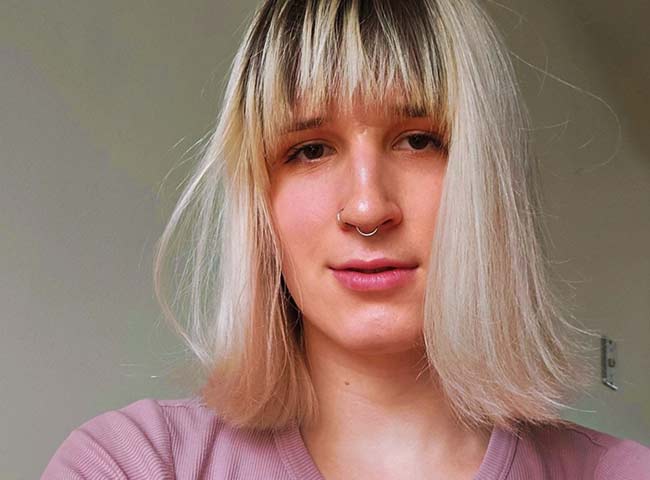Meet Freya

Freya's story
Electrolysis Support Fund recipient
Freya (she/her) is a disabled trans woman who is underemployed due to being a student. She lives in a two-bedroom apartment with her brother, and the money she makes barely covers her bills. Currently, Freya has over $3,000 in medical debt from laser hair removal on her face, surgery she had last year, and dental work.
Growing up FLDS, Freya has always faced financial hardships and never had any family support. She is currently getting electrolysis when she can afford it, but at $70 an hour, it is too much for her to handle.
"I hope that I will be able to get bottom surgery by receiving electrolysis," Freya shares. "Post-bottom surgery, I believe it will get rid of my extreme bottom dysphoria, depression, and anxiety around partners. It will allow me to wear gender-affirming clothing easier and increase my safety since I live in a conservative state."
Freya's timeline
-
Award Granted
April 4, 2024
Freya was awarded a grant toward permanent hair removal!
-
Care Received
April 15, 2024
A payment has been made toward Freya's permanent hair removal!
-
Update
May 22, 2024
Freya shared, "As someone with very little income receiving this has been almost life changing. I was going to have to put off surgery for months due to not being able to afford electrolysis. Now I'm going to be in time for surgery!"
-
Care Received
June 4, 2024
A payment has been made toward Freya's permanent hair removal!
-
Care Received
September 13, 2024
A payment has been made toward Freya's permanent hair removal!
About Hair Removal: Femme Award
On average, it costs $2,300+ for Freya's care.
- What is it?
- Before care
- After care
What is it?
Point of Pride provides grants to trans femme people seeking hair removal on their face, neck, or an area of the body in preparation for bottom surgery.
What is life like for a person who needs this care?
For trans femme folks, particularly trans femmes of color, access to facial hair removal often equates to safety against anti-trans violence or discrimination. It's common for applicants to note issues with employment and public safety, particularly if their facial hair is dark or thick. Electrolysis and laser hair removal services are often deemed cosmetic and therefore not covered by health insurance plans.
What is the impact of this care on the recipient’s life?
Access to hair removal often leads to a more positive emotional well-being, increased confidence, increased safety when in public, and better opportunities at employment and more.
Your support funds healthcare that's
life-changing. Life-saving. Life-giving.